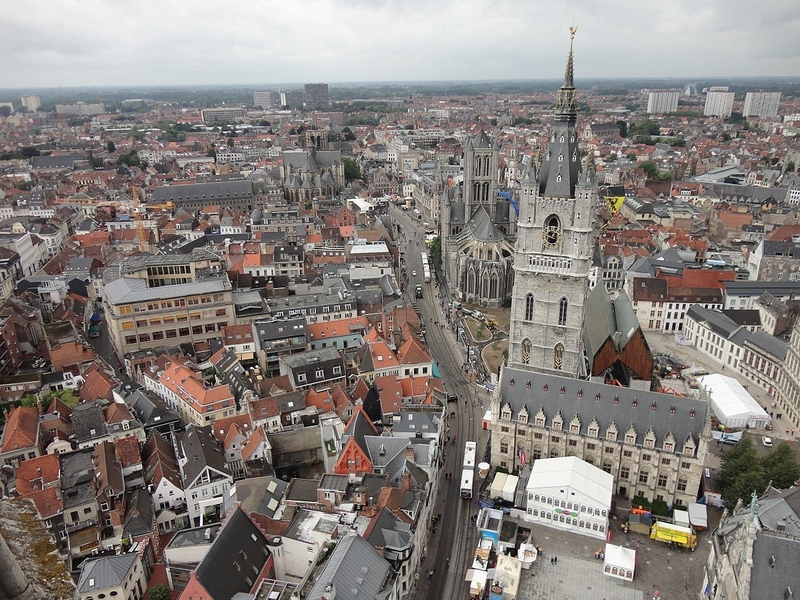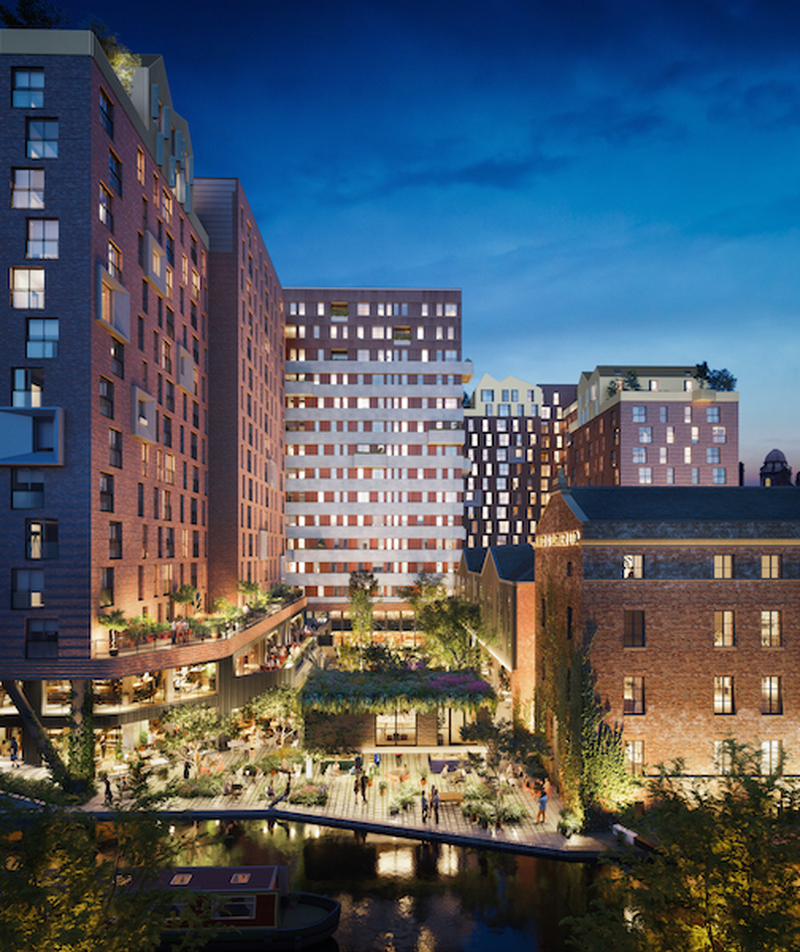Jonathan Schofield interviews Belgian developer Zabra about what Manchester says to them
Laurens Brantegem is the Director of Development at Zabra, a Belgian Real Estate firm who develop and build properties and often continue to own them, rather than sell them on. They visited Manchester for a three day study trip last week and I escorted them around.
So what did Laurens and his company think of Manchester's rampant building programme? After all, he had met many movers and shakers, such as Adam Higgins, co-founder of Capital & Centric.
With the quality of the environment, streets, pavements, parks, it's a lot less than in Belgium. It surprised me.
JS (Jonathan Schofield): What is your perception in terms of the development in Manchester?
LB (Laurens Brantegem): The sheer volume surprises me, you see tower cranes on every corner of the street and thousands of apartments being developed simultaneously. This is, for us, special to see.
JS: It's a bit special for us too. Is the development model very different in Belgium?
LB: Yes, it is, because I understood that here, in Manchester, you can go to the city with an idea or concept about a project, without any restrictions. You can present it, if it is agreed or not agreed, then the attitude is, we will see. In Belgium an idea is completely restricted from the start in height, in terms of typology of the apartments or offices and in terms of volume. This is across the country.
JS: There are very many ex-industrial towns in Belgium, as in the UK. Do you encourage development in these areas with different regulations especially on brownfield sites?
LM: No, not really. It is because the power of the public entities seems much bigger in Belgium than here. The people who work for the city will decide how high you can build, the volume and the type. The market does not speak for itself, it’s the city which thinks best. It is the city which tells us how we need to proceed.
JS: Is that frustrating?
LM: It is frustrating because there are a lot of projects which get stuck for years and years because you’re in discussion with the city over maybe some small point. And probably, we think, the private sector knows the market better than the public sector.
JS: You mentioned during the tour that very few cities, such as your city, Ghent, build tall buildings. Why - given these can deliver higher density without the associated urban sprawl?
LM: Many cities might want to go tall but our national legislation is... let me put it like this, very democratic. Every neighbour can go up against your permit (planning permission), and then you lose years and years. So lots of projects that are good, durable, and effective get stuck because of one or two neighbours. It can be that few. That is when it becomes frustrating.

JS: From what you have seen of Manchester, is development under-regulated here, in your opinion?
LM: It is certainly very different, it appears. One thing that caught my eye is the quality of the environment; streets, pavements, parks, is a lot less than in Belgium. It surprised me, how you can go from a new development area and the paving is good and then in the next ten metres, the stones rock, and splash you in wet weather.
When in Belgium we propose a big project to a city council we always adjust with parks, public areas, and fun stuff to give a lot of living quality - you know to make life more attractive for residents and visitors. That I haven’t seen in Manchester, not in the public areas.
It is true that each new development we have seen has some element, larger or smaller, of putting in green space inside its perimeter such as with Kampus. That is very good. But it feels like each development is like an island, separate from the next development and not so integrated.
I think in Belgium it’s very effective, that a condition for the permit is that you have to renovate the area around your development at the developer’s cost, not, that of the city, and not just restore it to what it was but really improve it. It’s not easy for us, as a business, but it does give more quality to your work. I think that delivers more of an overall civic view of the city.
Perhaps if you took the best of our methods and we took some of your dynamism, we'd have a nice balance.

Brantegem's calm and precise answers provide a fascinating insight into how other European countries, especially Northern European countries, view the British, specifically the Manchester, way of doing things.
It gives us some perspective on ourselves. Some of the points will chime with many who are fascinated, delighted or appalled by central Manchester and Salford's heady pace of change and development. The quality of pavements, the lackadaisical maintenance of the small central public gardens, the chaos of different types of bins and other street furniture do stand out as a British civic sin.
Yet, who would want the stultifying over-control of development that might kill entrepreneurship and dynamic movement? Who would want years and years of delays in areas that might benefit from investment, held up by a couple of complainants?
Another interesting point is the balance between civic authority and commercial interests in the two systems, with our civic authority so much less than in Belgium.
Of course, these are Laurens Brantegem's impressions from a three day visit, but they are perceptive and provide food for thought. As he states at the end of the interview, it'd be excellent if there was a middle way, delivering dynamism with greater civic management.
On a final point, Brantegem, slapped us collectively on the back in Manchester, for our warm welcome at every turn, not just with the official visits, and for the open and "unbelievably honest and frank" way in which architects and developers discussed the present central Manchester building boom.












